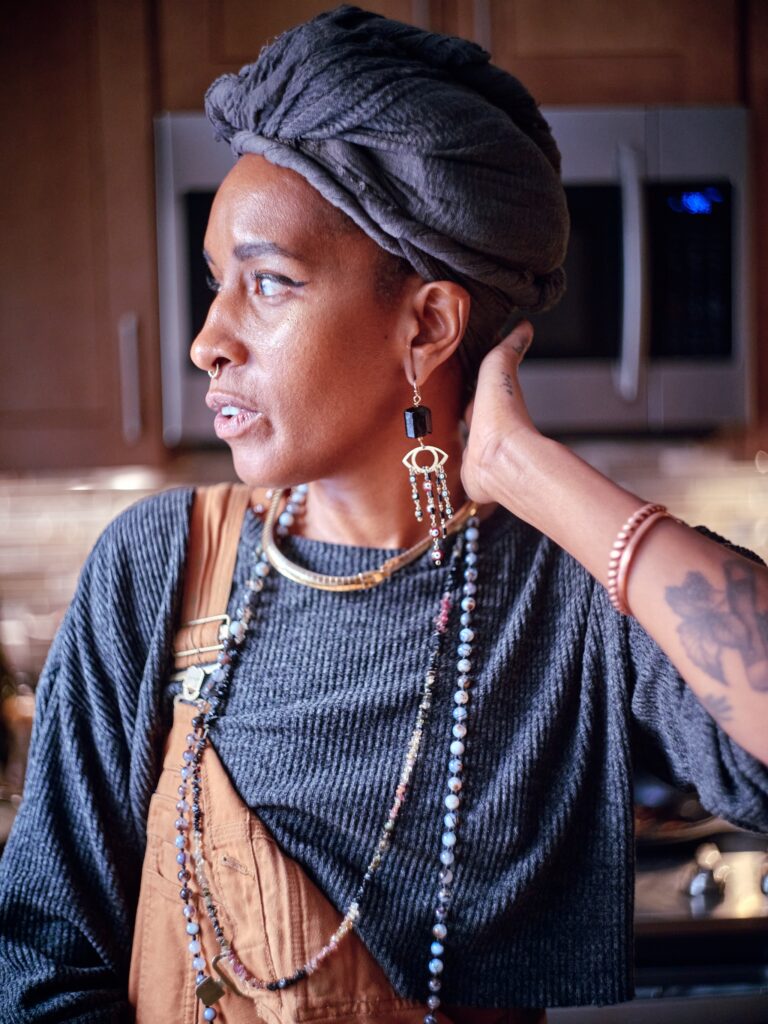A Pot of Something
A cooking session with multidisciplinary artist and sanctuary maker Sarah White: on slowing the hustle and the work that goes into not-work
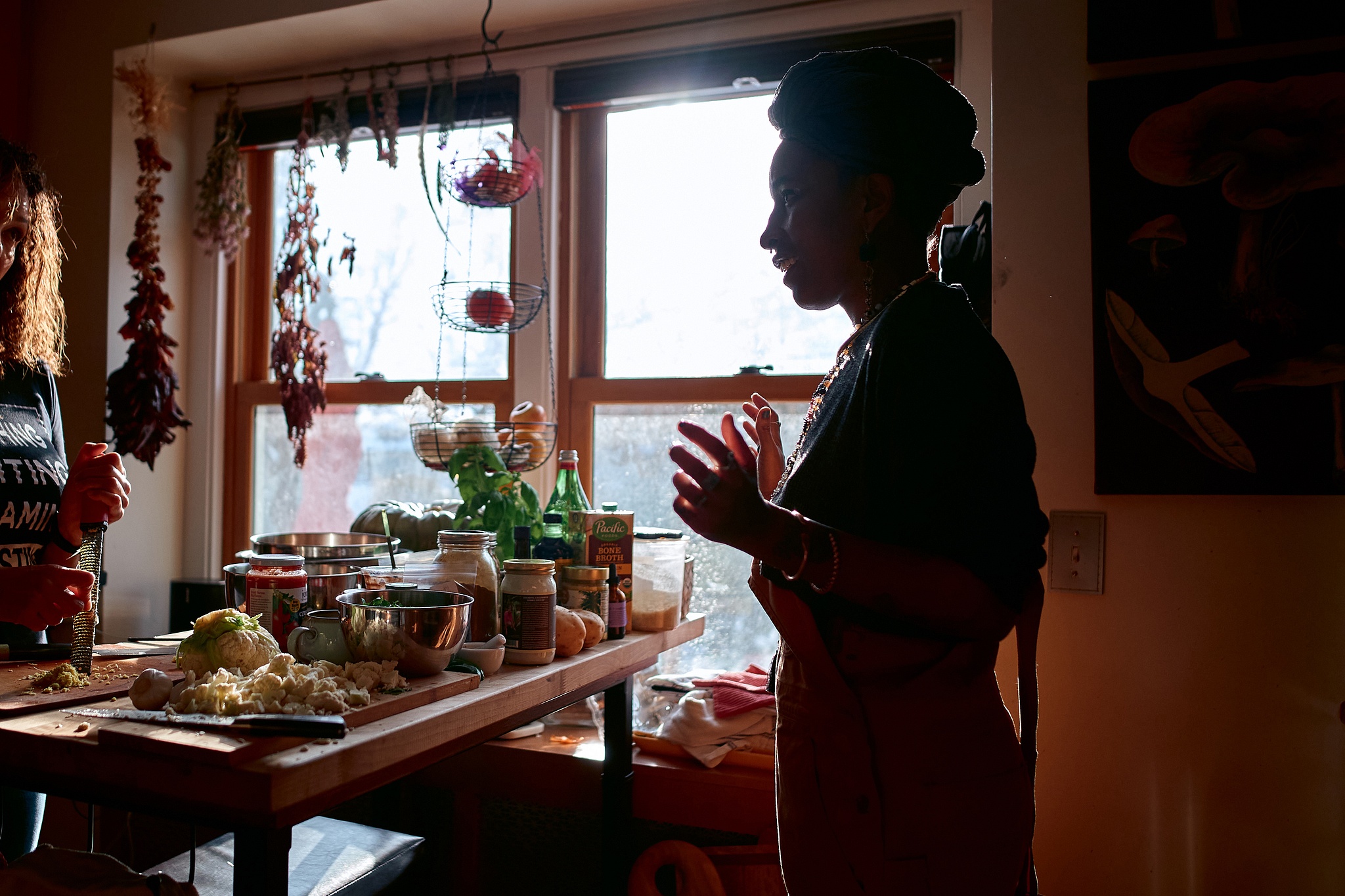
Black women are tired.
On her latest SNL performance, Lizzo paid musical homage to Blue Monday, the iconic painting by artist Annie Lee wherein a Black woman rises (again, again, again) on a Monday morning, exhausted, but with no choice but to carry on. Instagram-famous Tricia Hersey is a self-professed Minister of Naps and preaches the gospel of rest as resistance—her message is particularly addressed to Black women. Writer and activist adrienne maree brown nurtures “pleasure activism,” a politics of healing and happiness that pushes against the myth that changing the world should be made up only of work.
Sarah White, multidisciplinary artist, farmer, rapper, singer, photographer, DJ, and bodyworker is now a sanctuary maker. At the moment it exists, but at the moment, it’s only in her mind. “I can just go there,” she says, with an aura of certainty.
As she prepares to make black-eyed peas and rice on a recent afternoon, “because ancestors,” she pulls out a bottle of truffle oil. She’s returned to “just a pot of something” as one step towards stress reduction in the kitchen—but that doesn’t mean she’s leaving “bougie” behind.
Today, she’s wearing overalls paired with countless pieces of jewelry. Regal in a gray headwrap, gold nose ring, and fingernails painted blue.
Taking stress off of her life—and that of other Black women in particular—is her current top priority.
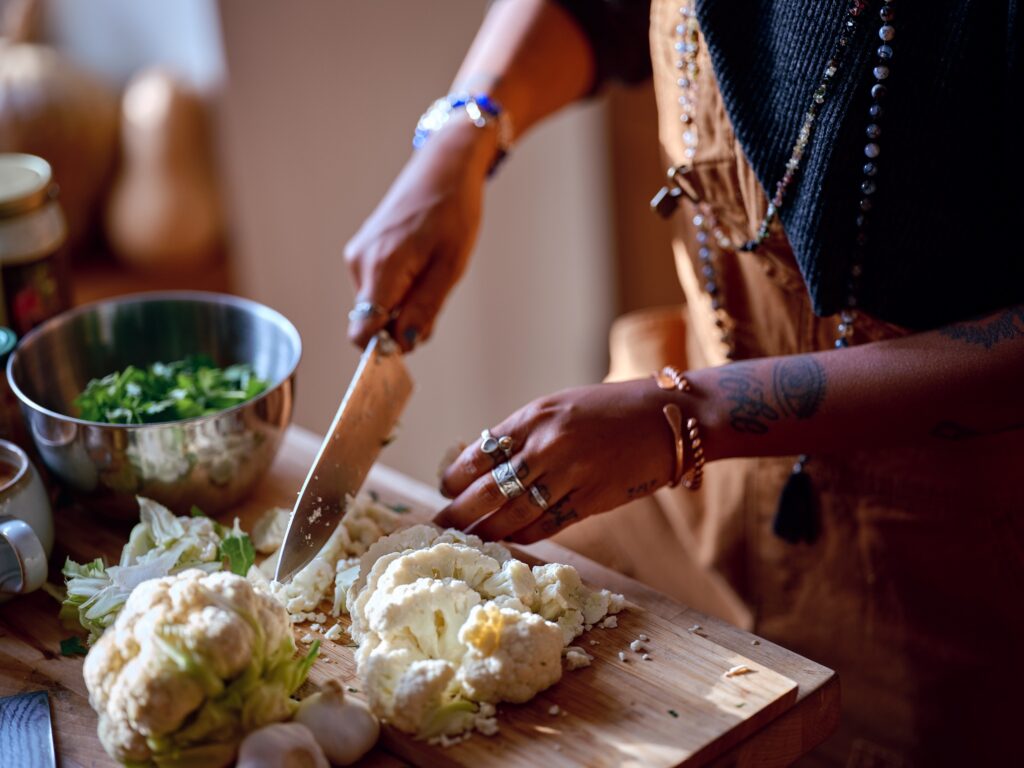
Photo: Uche Iroegbu. 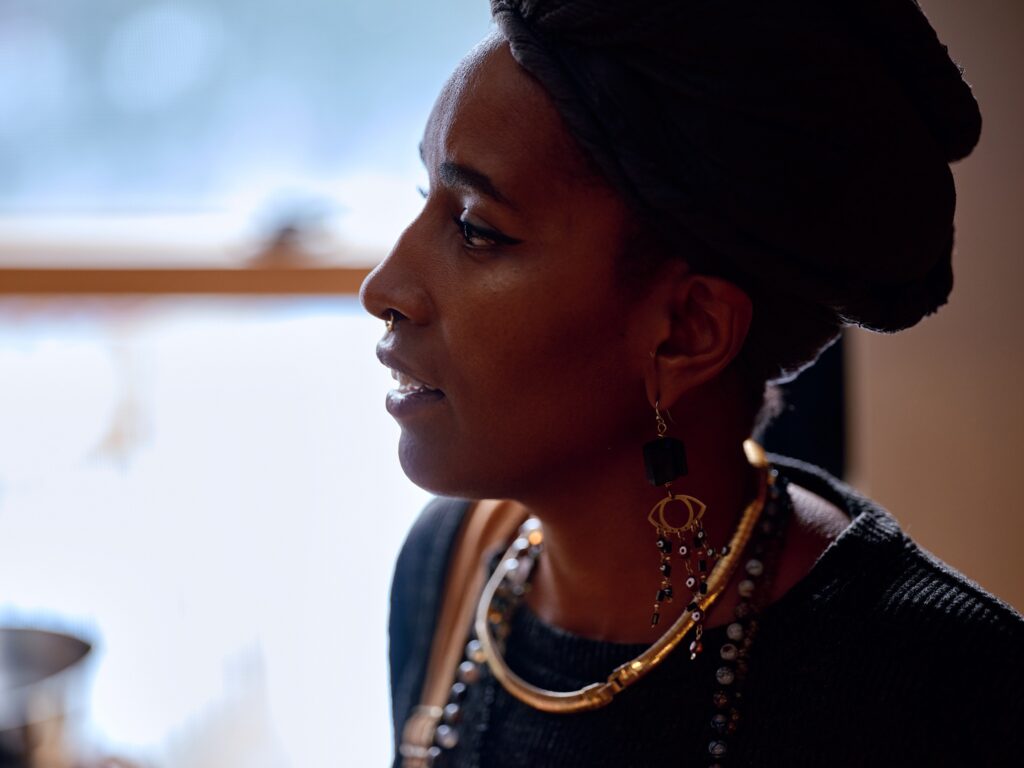
Sarah White. Photo: Uche Iroegbu. 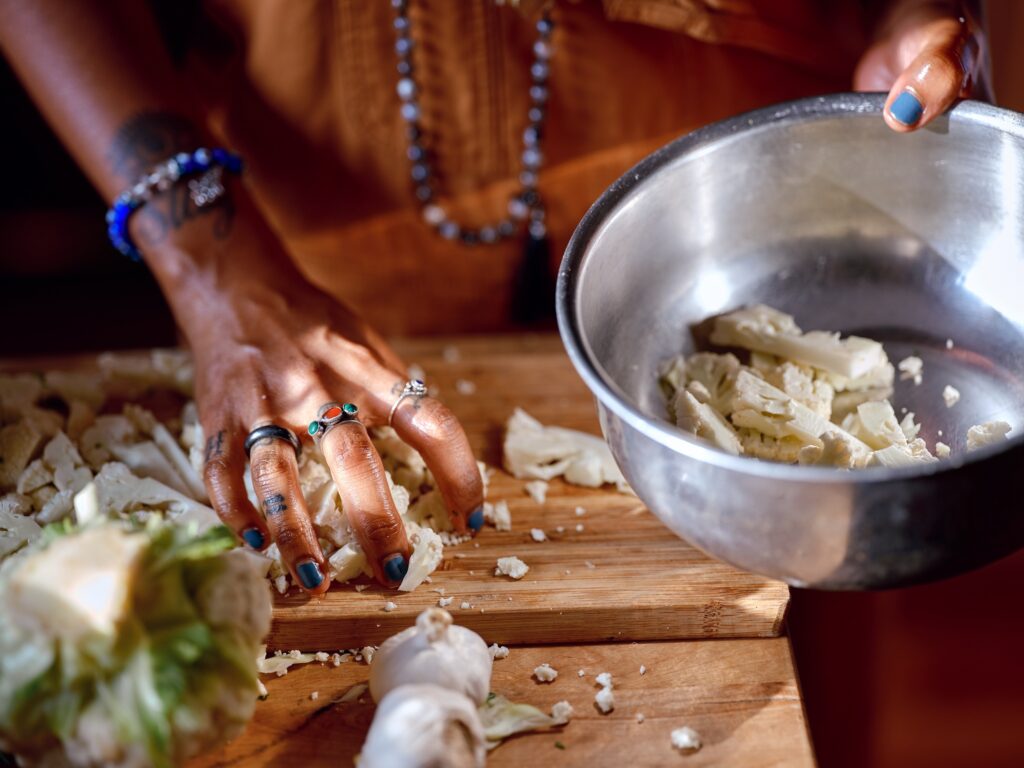
Photo: Uche Iroegbu. 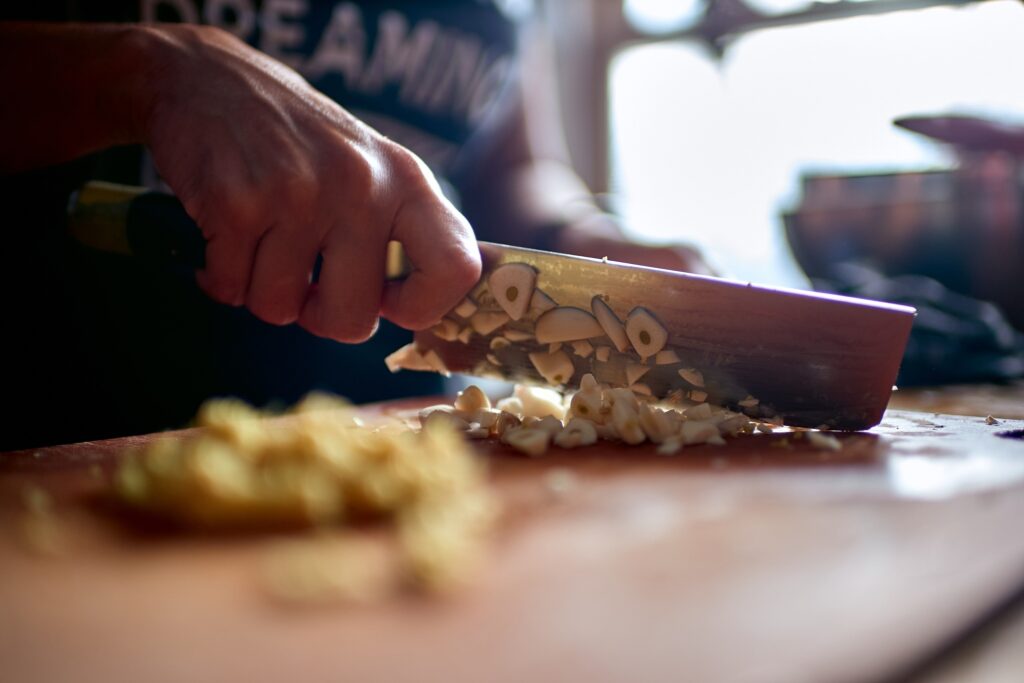
Photo: Uche Iroegbu. 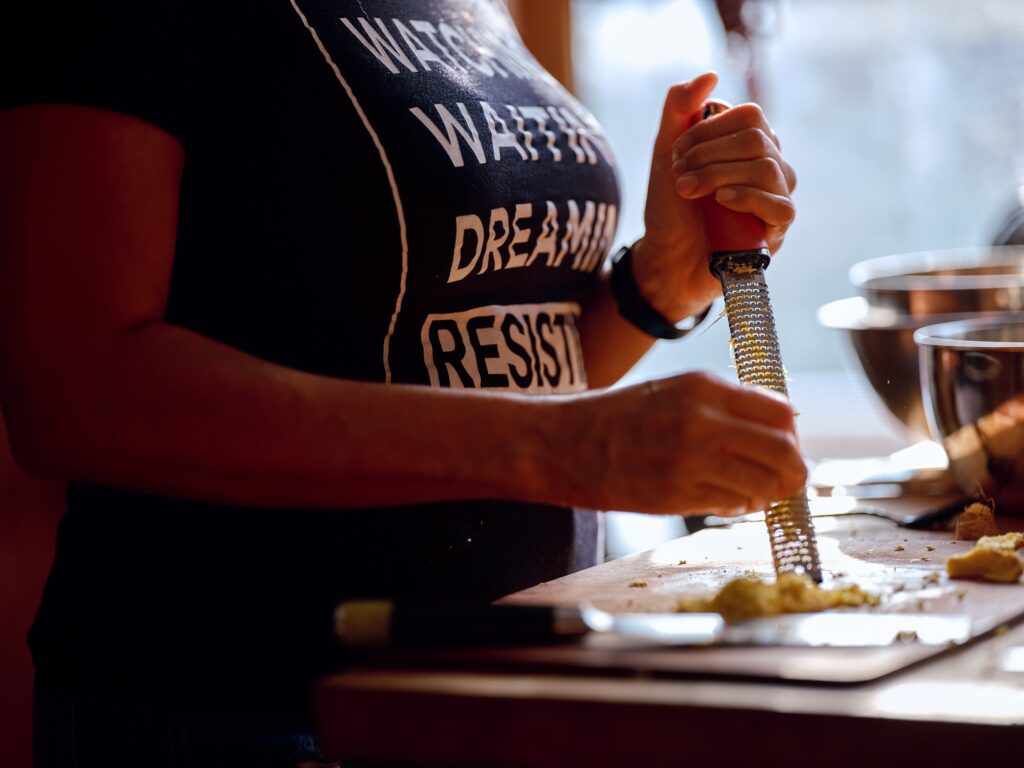
Photo: Uche Iroegbu. 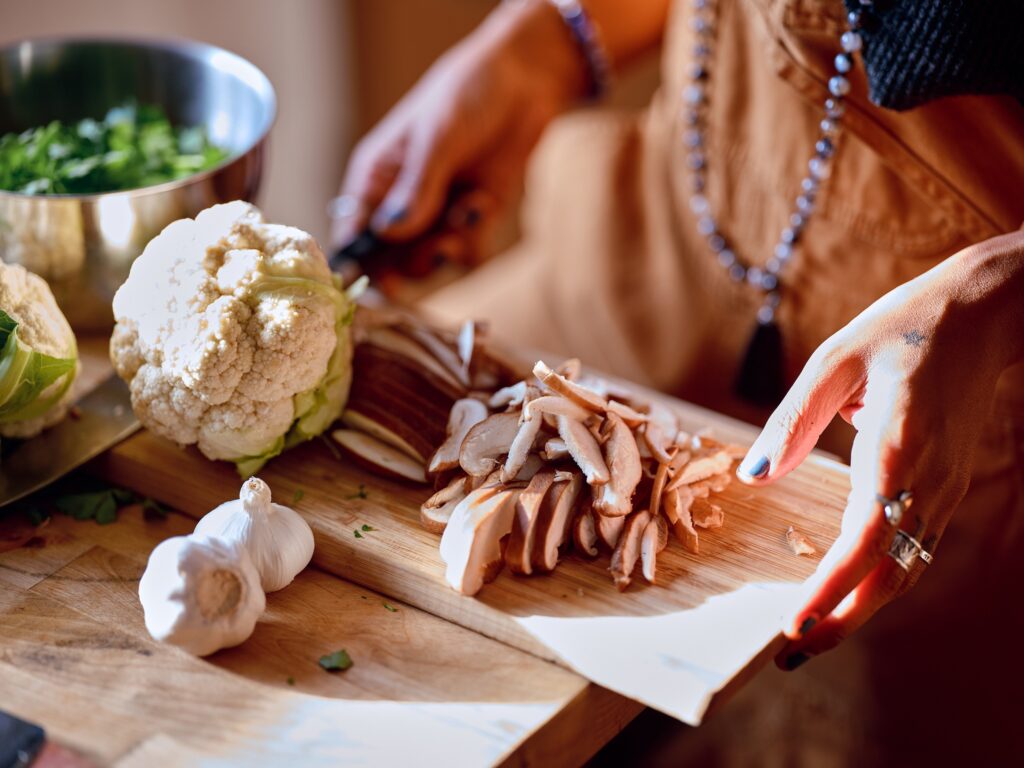
Photo: Uche Iroegbu. 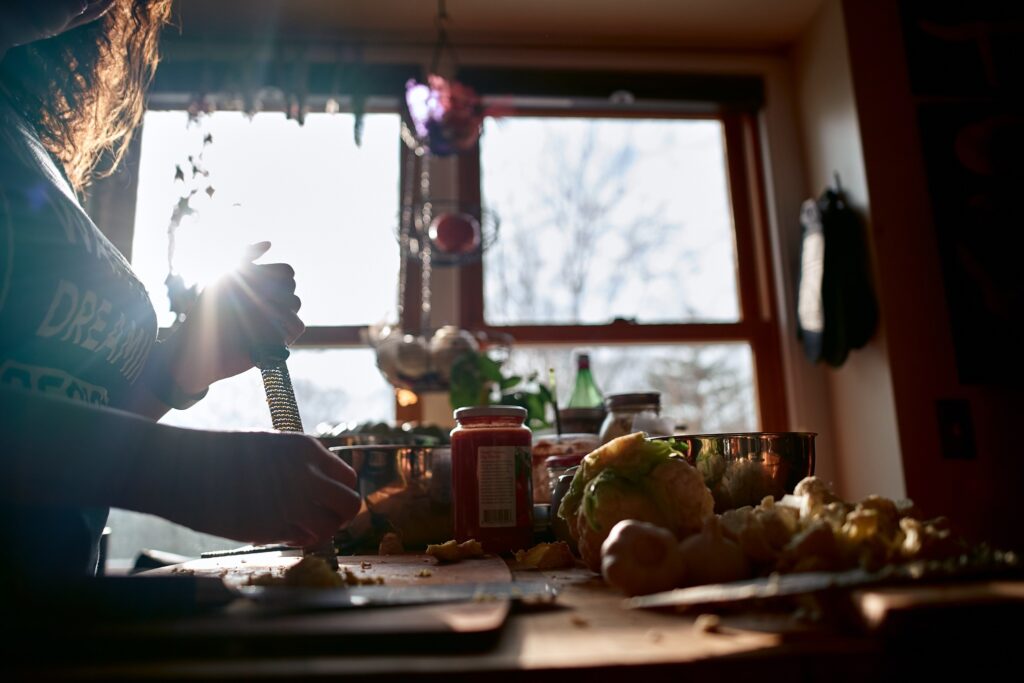
Photo: Uche Iroegbu.
“People come in crying, like experiencing recent trauma.” In her bodywork practice, clients are often other people like herself—activists, curators, healers, water protectors, people she calls “rabble rousers.”
They come to her to clear their energy, but then she’s left to clear it once again for herself—potentially a more complicated equation.
Pre-pandemic life for Sarah as “a real artist,” as she described it, meant hustling at all hours to prove her relevance in the scene, she says. Like many of us, that hustling often came at the expense of her own wellbeing. And like lots of hustlers, Sarah didn’t slow her hustle until she began to notice the toll—not on herself, but on others.
“I’m seeing patterns of illness showing up in other Black women, who are in my hands, and they’ve been living the way that I’ve been living most of my life.”
She realized: “If I’m going to hold bodies, I have to practice for it.”
Practice at rest, in other words.
Practicing at “a pot of something” in the kitchen, instead of multiple dishes. Practicing at choosing not to sacrifice bodily health for the sake of the rent.
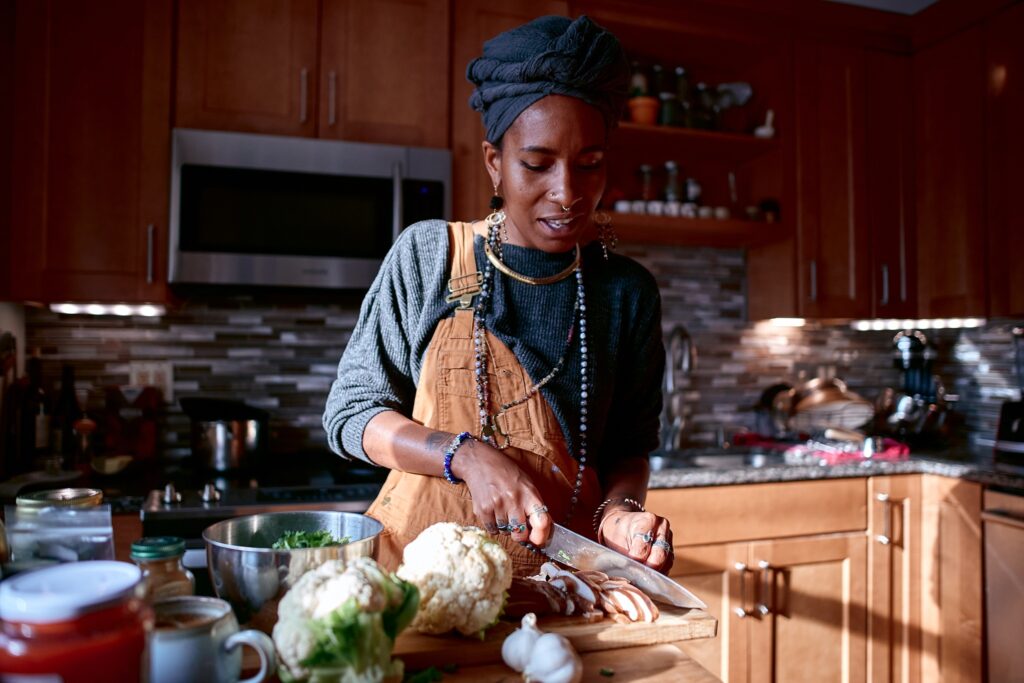
But like any paradigm shift, it’s more complicated than a pot of beans.
Growing up in a God-fearing, Cosby Show family, Sarah’s mother was raised in the deep south, and her dad in Chicago’s infamous Cabrini Green public housing. She grew up eating a lot of “Black shit”: collard greens, fried chicken, chitlins, batch cooking, and growing their own. Her dad hunted, fished, even ice fished, and taught her to do the same—skills that are likely to be crucial in this moment in the life and times of Sarah White.
But she ran away at 16, feeling deeply that there was more to life for her than leading a “good” Christian lifestyle.
“I knew that there had to be more directions that pointed to God, and I wanted to understand that without having shame projected on me.”
Still, she learned to sing in the church, leading to theater geek-dom, and eventually taking first place in singing competitions. Her dad was a photographer so she too picked up the camera and started making money shooting portraits. Often, she takes those portraits after bodywork sessions.
“Sometimes people feel so bad about who they are,” she explains. “But I can get somebody’s nervous system to settle first. We’ll do a sound bath or whatever, and really get a sense of who they are.”
This kind of artistic output, she admits, can be extremely challenging when dealing with “systemic projections”—capitalism’s insistence that we think of everything, including art, in terms of its linear output potential.
“It’s like, ‘This is what you can do to survive!’ What white supremacy has deemed a valid way to live. And right now, unlearning that is my biggest priority.”
She’s unlearning it by returning to the land—40 Wisconsin acres that was recently donated to her—and coming into a full visualization of what those acres could ultimately be. Ideally, it will take shape into her sanctuary.
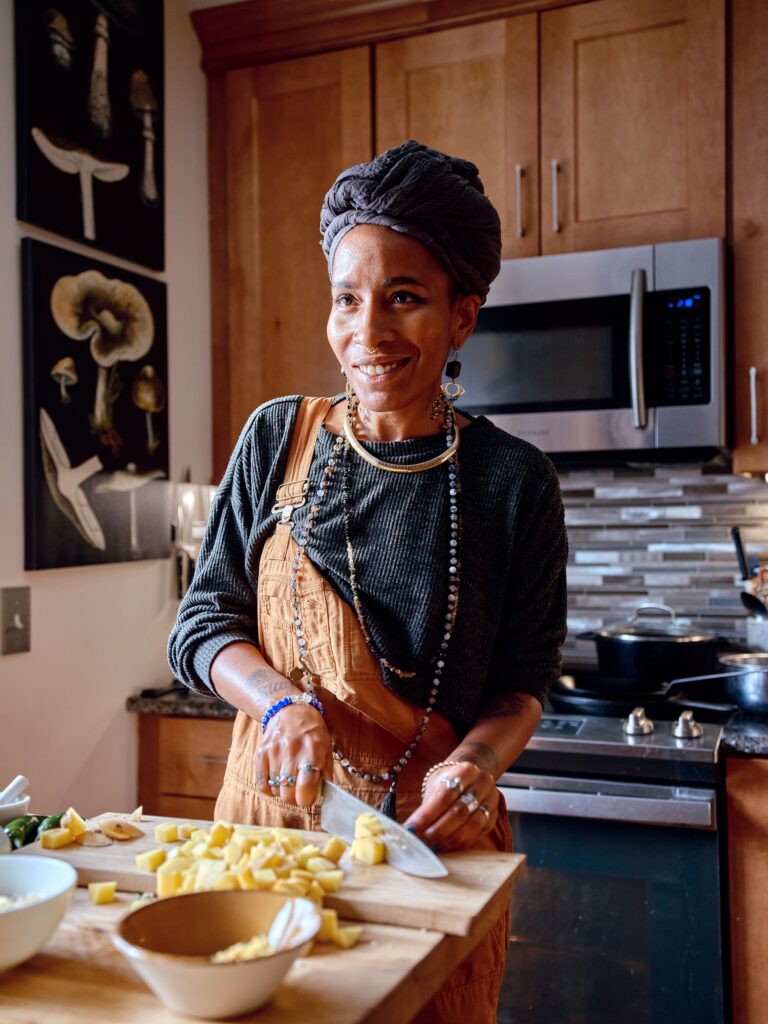
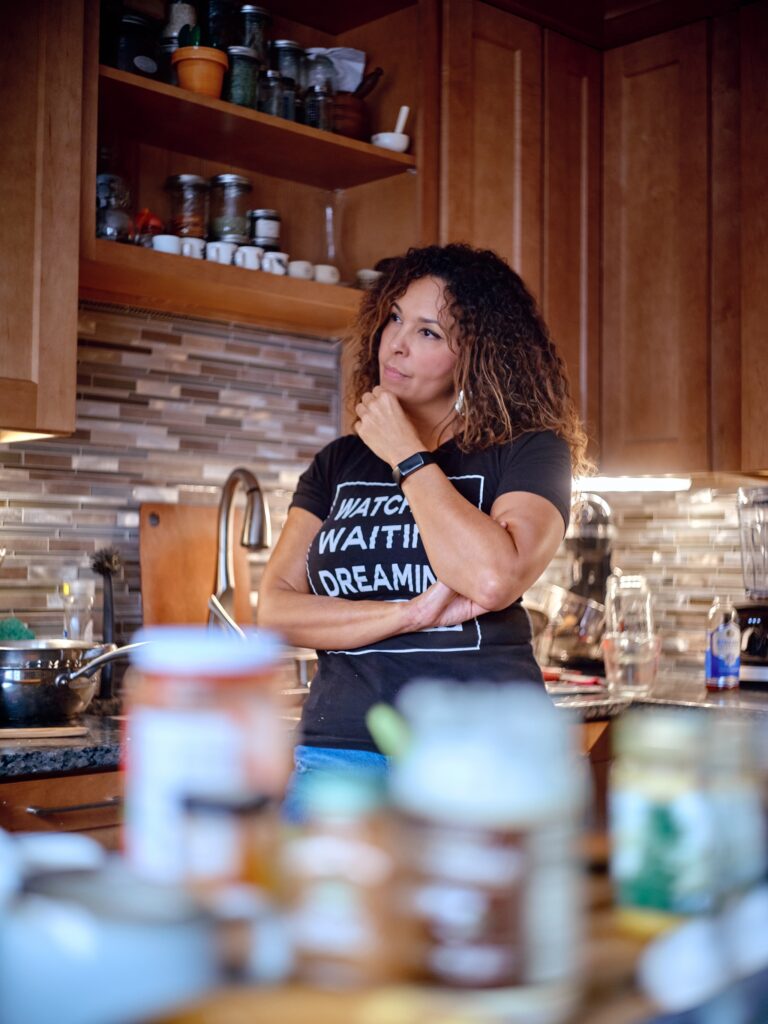
“I strongly believe in generational healing by resting and not needing to produce for a period of time, so I’m trying to build a communal space to do that.”
In her mind, it already exists, and she could just go there. Or I could go there, and we wouldn’t have to write an essay about what the experience meant to us, or work communally, or prove our worthiness to be there.
“Especially for Black women,” she says. “There’s no brand, there’s no responsibilities. If you want to participate, that’s helpful, you know, but you don’t have to. You don’t have to produce, or write a book. It’s a restful treatment. A place for people of color to learn about their bodies.”
The dichotomy, of course, is that making the vision come to fruition probably means a lot of work. Lots and lots. Sarah’s land is covered in decades worth of trash and detritus—it was misused as a dumping ground—so she’s thinking of trying to build an Earthship out of that trash. She doesn’t know how, exactly, to live off the land, so she’s traveling to Alabama for a workshop on Black land stewardship, where she’ll be camping in 15-degree weather, taking night shifts to keep a campfire going, among other arduous lessons.
Ultimately, a lot of work will go into the business of not-work.
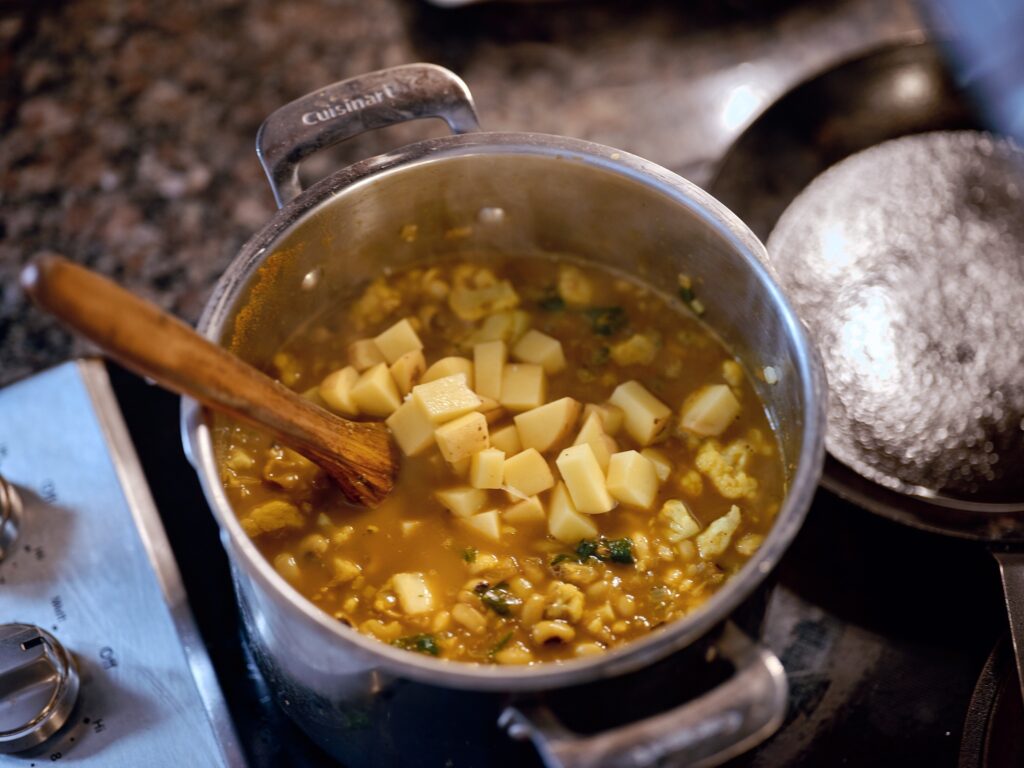
And for her trouble, Black women like Sarah are often expected to lead with their Blackness.
“In some ways I don’t want to keep dragging the Black woman with me,” says Sarah. “I just want access. I don’t want to fight or tap dance around with it.”
For our trouble, we’re too often tokenized, especially in the wake of George Floyd’s murder—our voices suddenly having an ear, on the fumes of a movement.
“It hurts my feelings,” Sarah explains. “Nobody gave a fuck about what I was already talking about. I started rapping about police brutality in 2002. You guys only hear me now that you see that brutality? I’m not going to do this for the wrong reasons.”
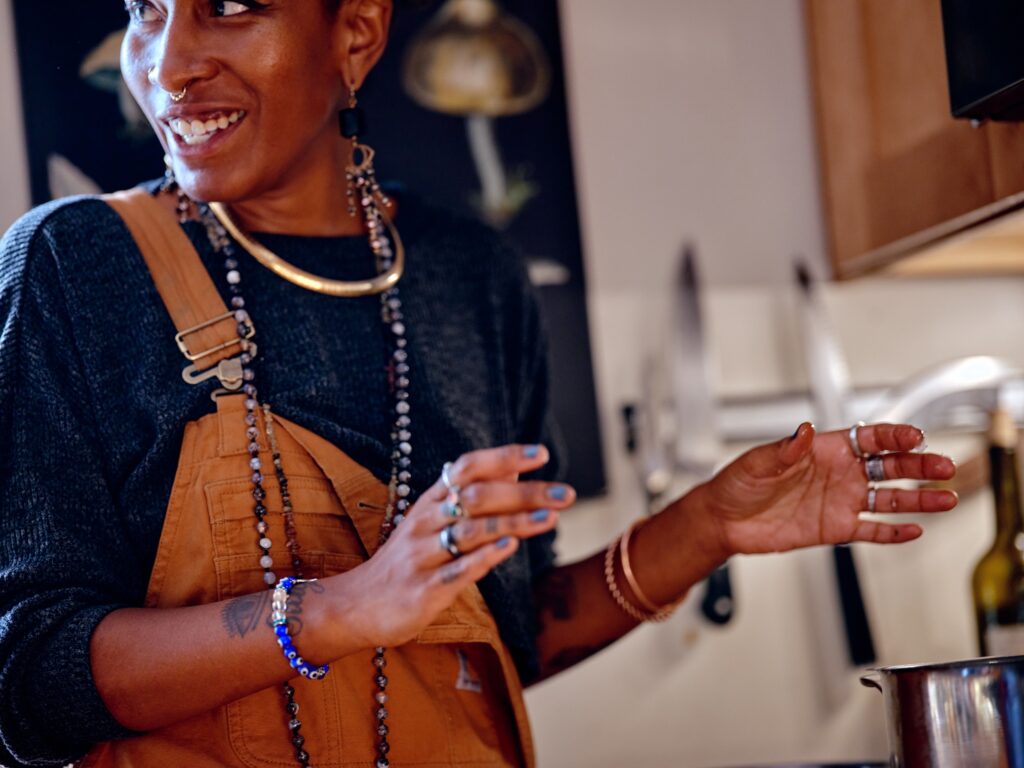
Sarah White. Photo: Uche Iroegbu. 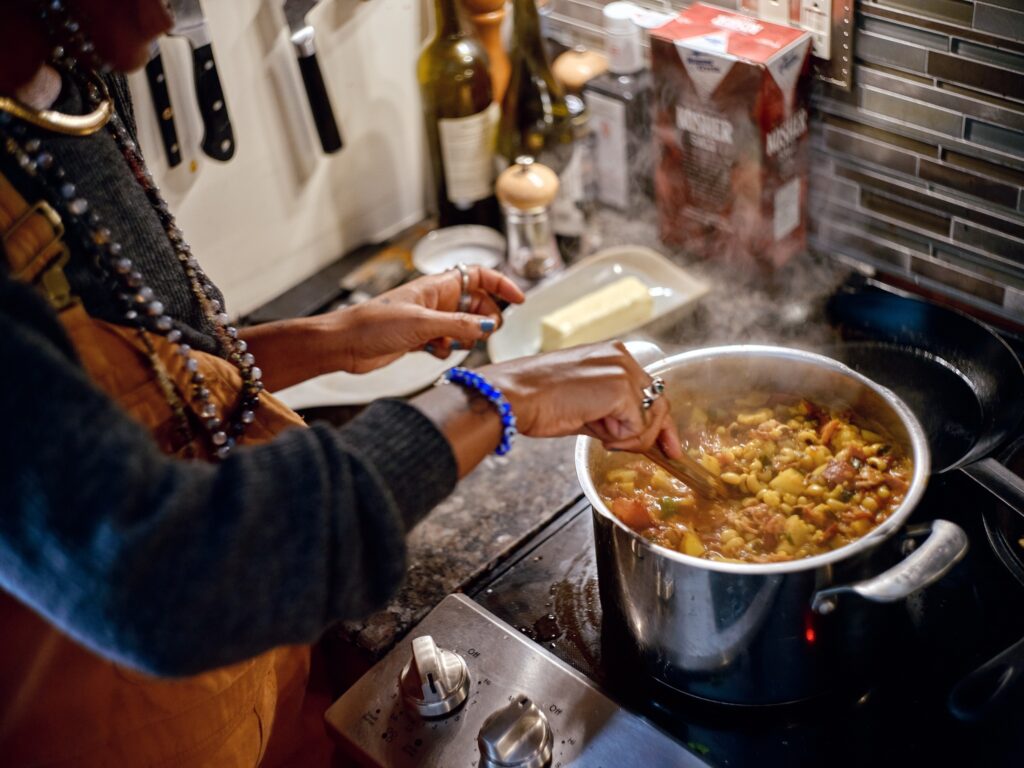
Photo: Uche Iroegbu. 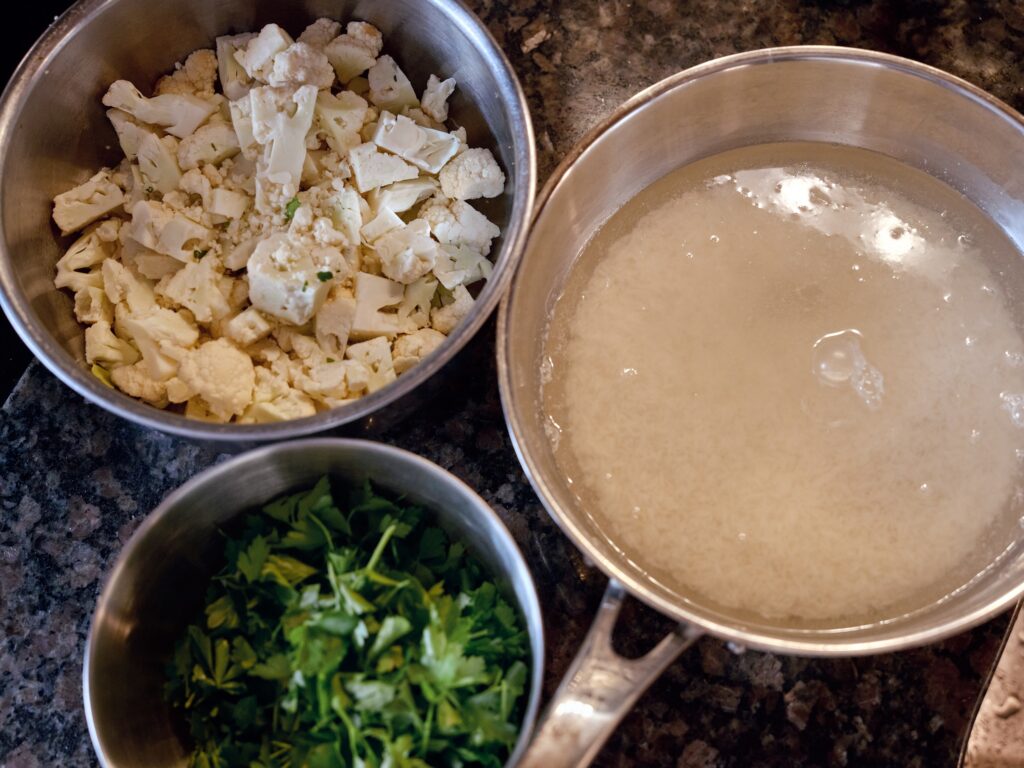
Photo: Uche Iroegbu. 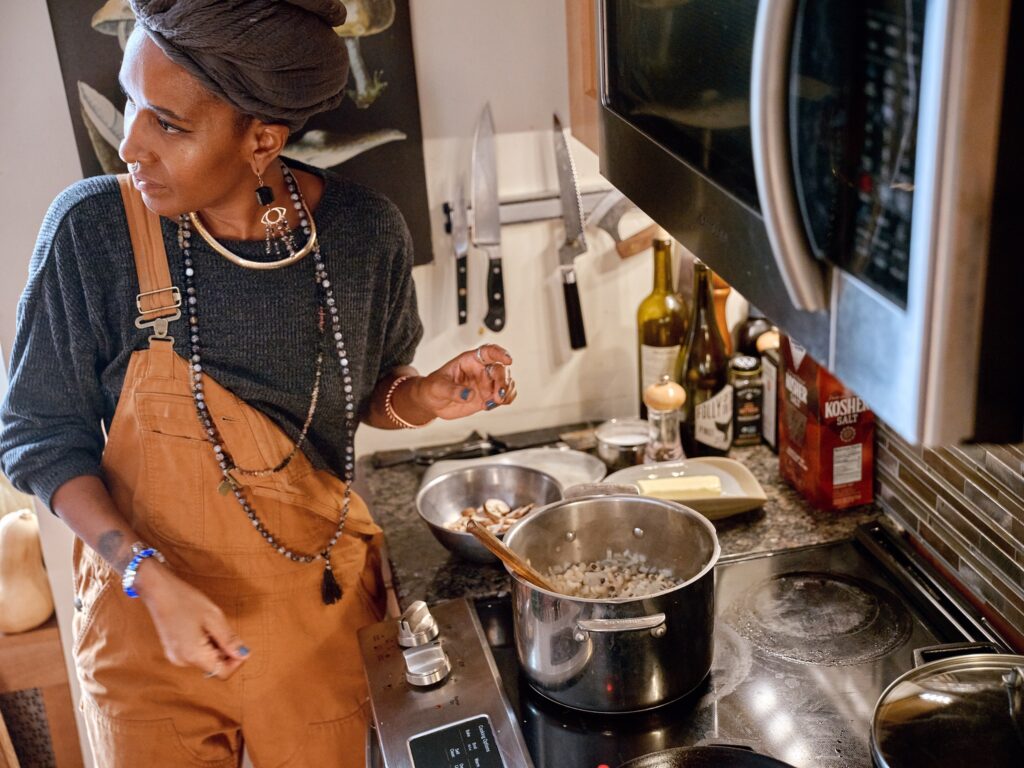
Sarah White. Photo: Uche Iroegbu. 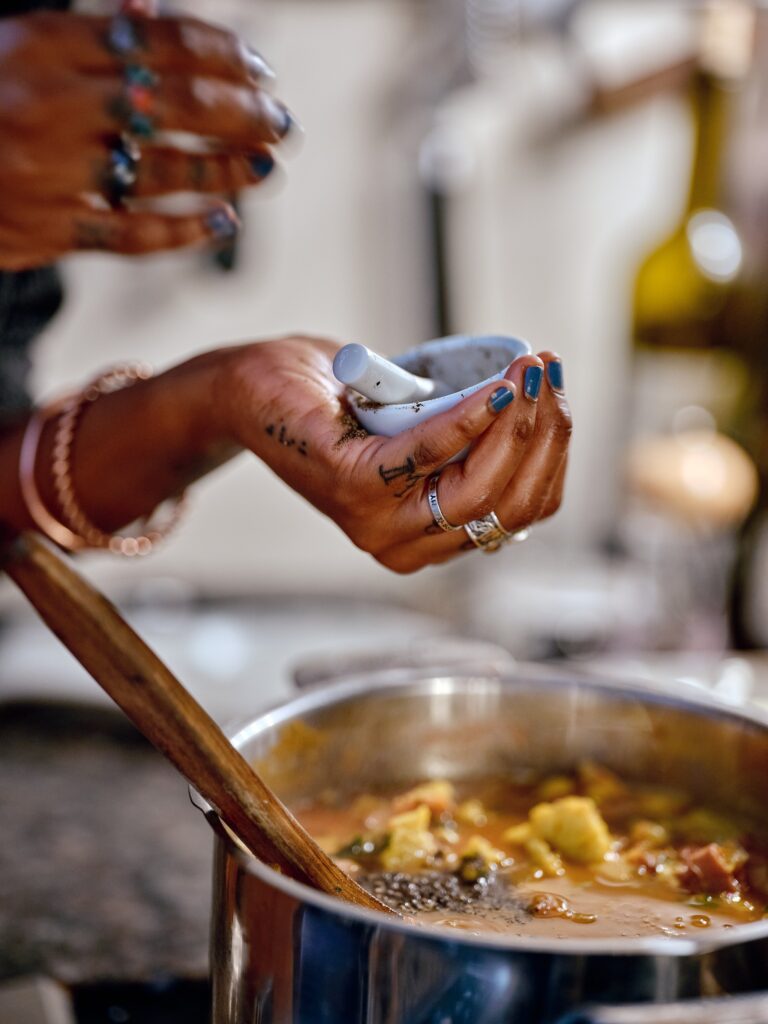
Photo: Uche Iroegbu. 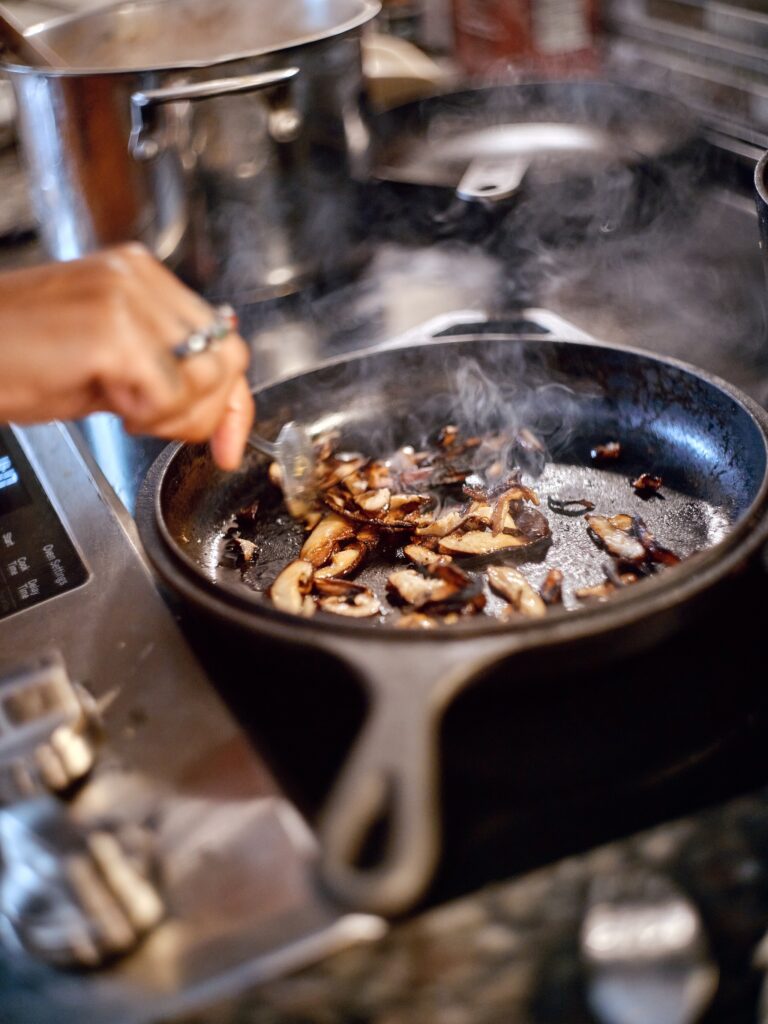
Photo: Uche Iroegbu. 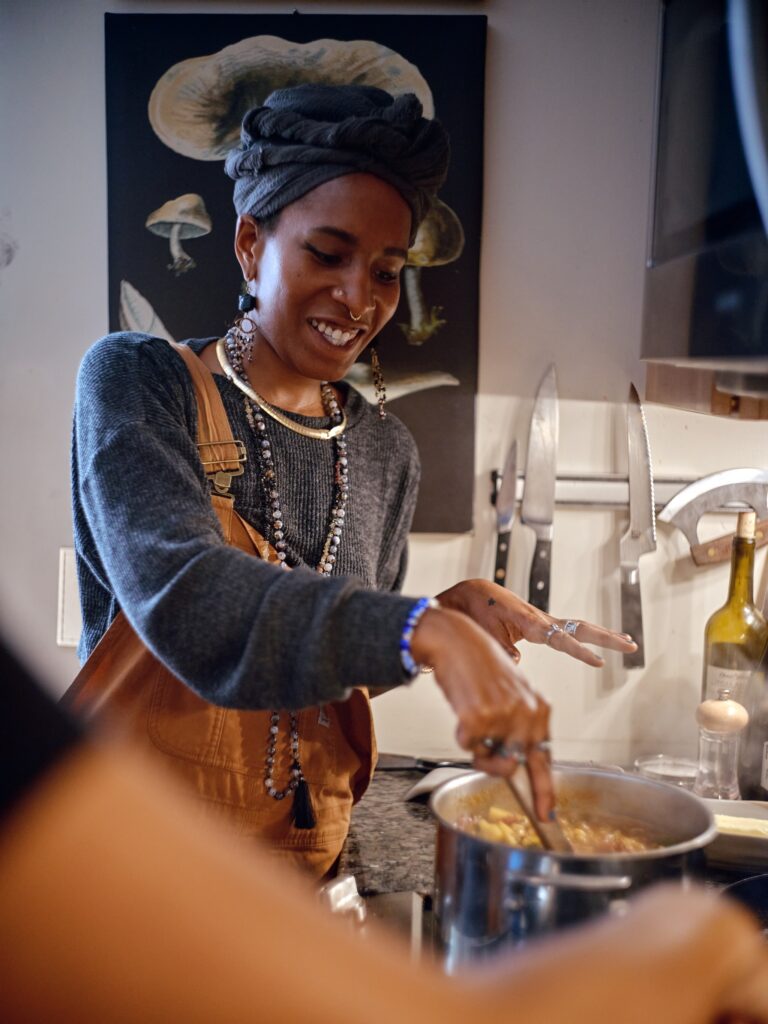
Sarah White. Photo: Uche Iroegbu.
“This” being the intersection of art and activism, which too conveniently has a platform now in places and institutions where it once did not.
So she’s saying “no” a lot. She’s making art that’s not up for consumption. She’s listening to spirit. “Sound, touch, sensuality and movement. Radical honesty and vulnerability.” She’s turned off by “fine print.”
What could be more radically honest than a pot of black-eyed peas and rice?
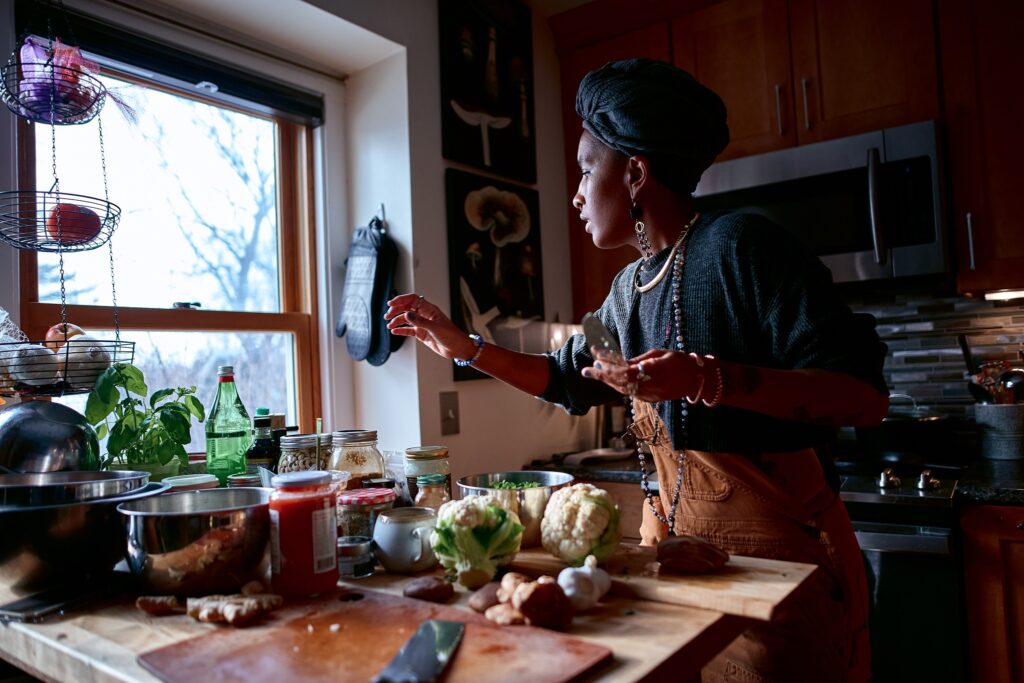
Hers is the Aquarian way of work and living: an acute presence of humanity and acting from the heart; releasing ego and replacing it with collective oneness; less connection with the material and more with experience. It’s a movement gaining favor with Black women in particular, for obvious reasons if you’re paying even a little bit of attention.
“I mean, how long have Black women even had autonomy over our own bodies?” she asks rhetorically, preparing to rinse the rice.
Answer: about 150 years, or five generations. Not very long.
This working towards non-work, or work that fills rather than strips—while compelling to many and as worthy an endeavor as perhaps any I’ve ever heard—can also feel as impossible as it is worthwhile.
But Sarah’s a believer.
“I do think it’s possible, but I think enough people have to believe it’s possible. It’s really easy to look at the world and feel like it’s not worth trying. But I think about, like, our ancestors. And then going back, back, back, back, back to what they were doing before we all got caught up. We’re caught up in a cycle that I don’t think is real. We’re all just atoms. So I’ve just been stepping back and divesting from most things until I get the answer. But the answer is not coming as fast as the rent.”
With that, we share our pot of something good.
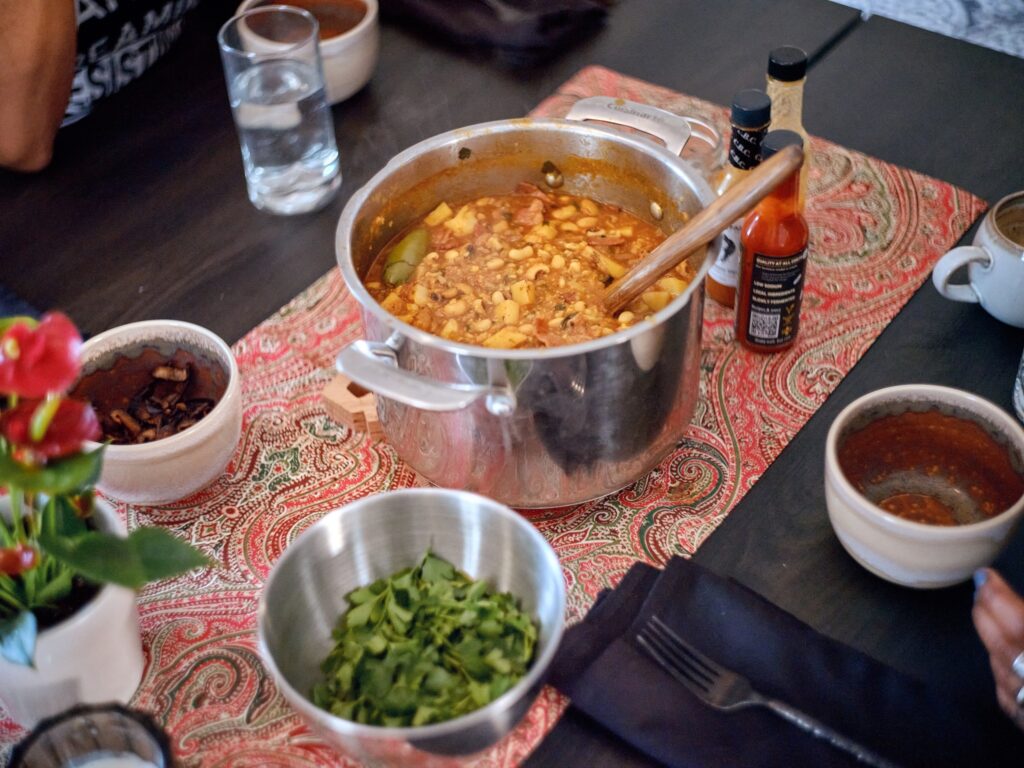
Photo: Uche Iroegbu. 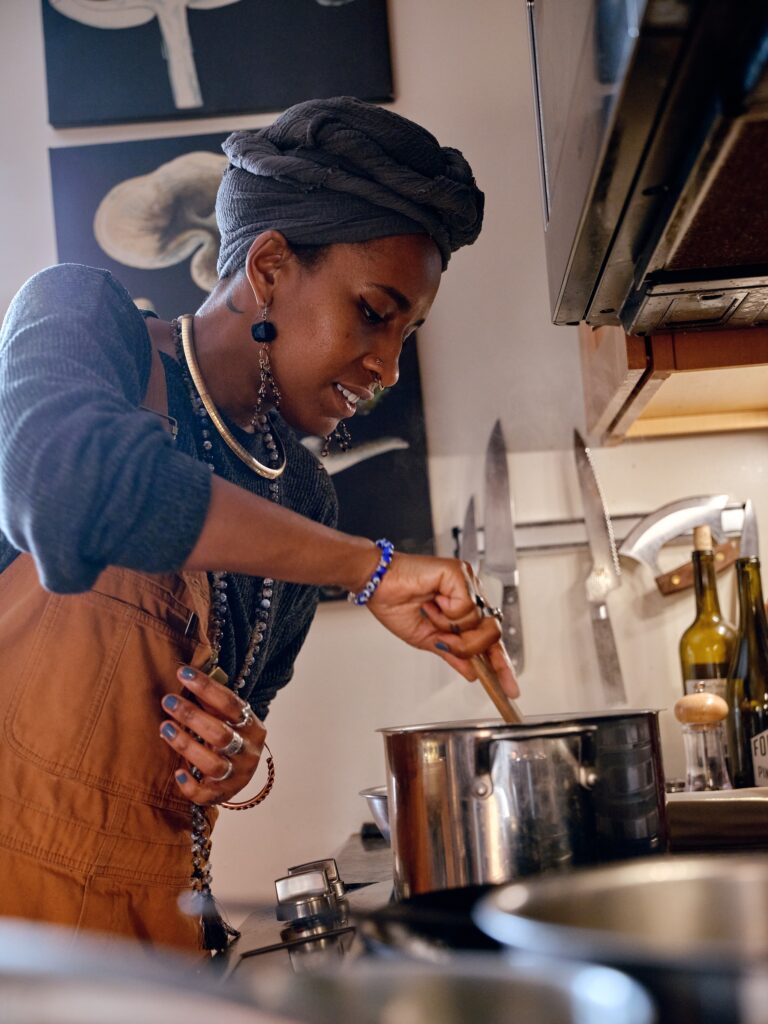
Sarah White. Photo: Uche Iroegbu. 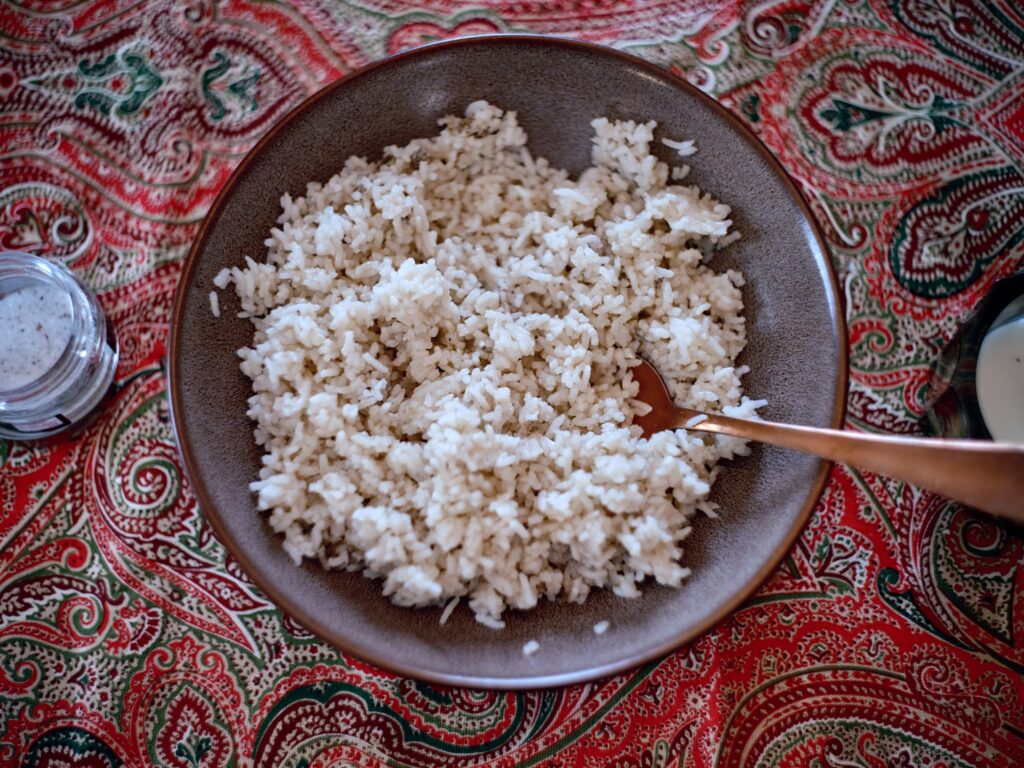
Photo: Uche Iroegbu. 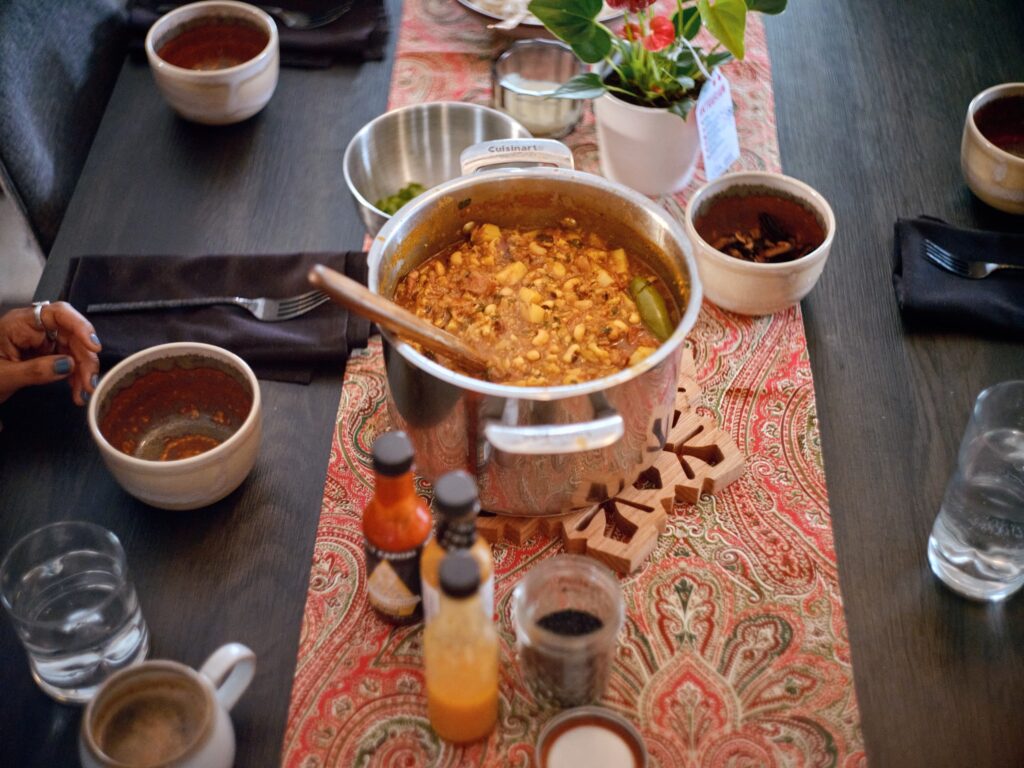
Photo: Uche Iroegbu. 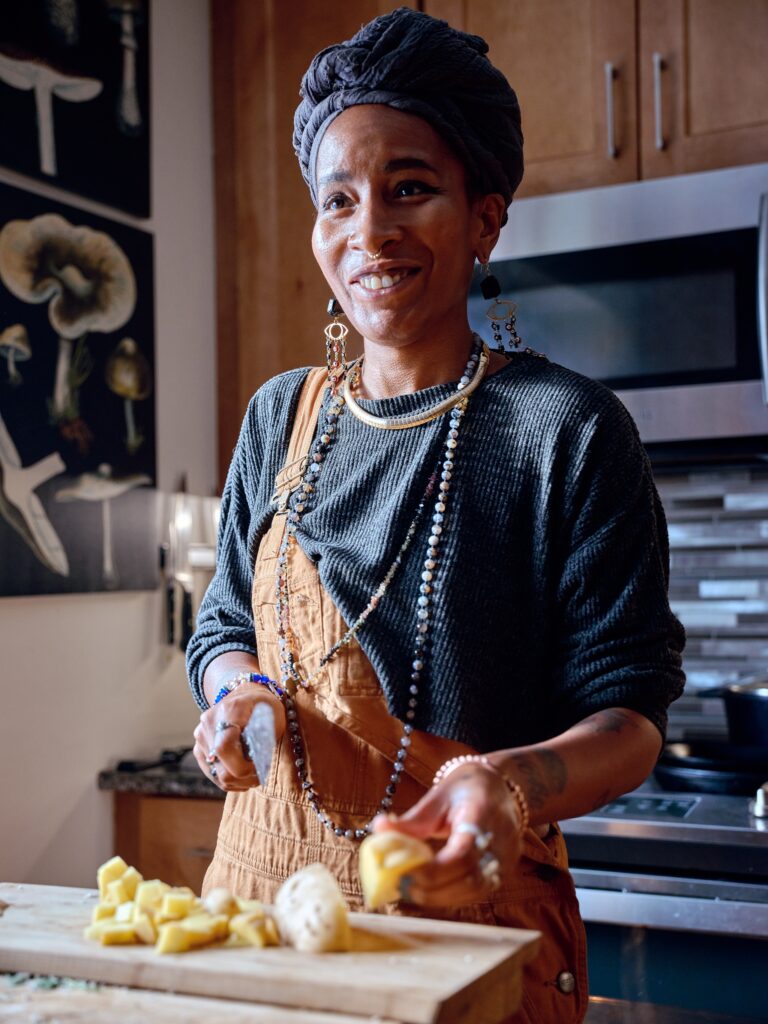
Sarah White. Photo: Uche Iroegbu.
1.5 cups black-eyed peas, soaked for at least one hour, or overnight 6 cloves garlic 3 russet potatoes 1 large white or yellow onion, diced 1 inch ginger, minced 3 tablespoons coconut oil 1 jalapeño 3 tablespoons turmeric 2 tablespoons curry powder 1 tablespoon Hungarian paprika 1 tablespoon truffle salt (optional) 1 cup minced or diced tomatoes 1 head cauliflower, quarter size cuts 1 tablespoon garlic salt 3 tablespoons minced dried onion 2 bay leaves 1 pack grass-fed beef tenderloin bacon, sliced (sub with your favorite smoky bouillon or vegetarian flavoring) 1 pack organic uncured turkey bacon (sub with 2 tablespoons nutritional yeast if vegetarian) 4 cups water, vegetable stock or bone broth Juice of 1 lime/lemon Amino acids, salt and pepper to taste Optional toppings: Crispy shiitake mushrooms Black sesame seeds Truffle salt In a stainless steel soup pot or ceramic pot, sauté onions and ginger in coconut oil until transparent. Add in garlic until mixed and heated through. Brown the curry in the oil and onions (not long, do not burn it, baby, just ignite the aroma) along with turmeric and paprika. Add the bacon(s). Once the sizzle has begun, add the liquid of your choice, beans, remaining spices, jalapeño, and potatoes. Cover and simmer over low to medium heat. I like to check and stir and sip often, adding more of what it needs, like a cauldron. That's where the magic happens. Handful of dried minced onions. Toasted sesame oil. Play with it. Once potatoes are soft, I add the cauliflower, tomatoes, amino acids, and salt and pepper to taste. Place the lid back on and cook until the beans are perfect—adding more water/broth as needed. Finish with citrus. I love to serve over basmati rice cooked with ghee. Good for kids, as well as lovers.
